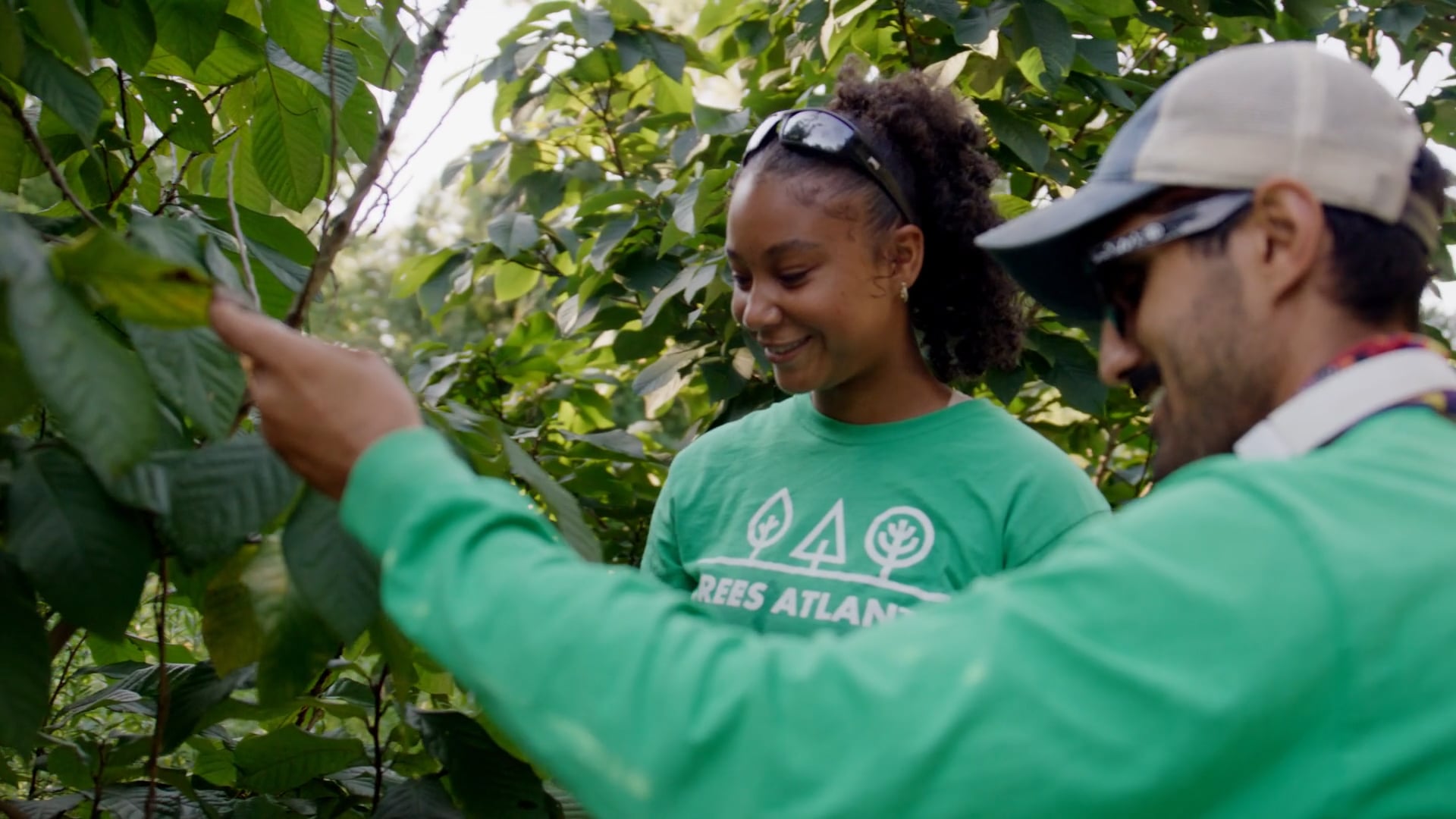Urban Forestry Career Pathways Program Empowers Young Atlanta Residents While Enhancing Beltline Trail
- Workforce Development
- Environmental Initiatives

The Beltline’s increasing attraction for business presents abundant job opportunities, and it is crucial that this economic growth includes all Atlantans. ABI has ramped up its workforce development efforts with organizations across multiple in-demand industries, working toward our goal of creating 50,000 permanent jobs.
One such industry that not only contributes to the beautification of the trail but also brings the benefits of trees to the neighborhoods it touches is urban forestry.
With support from an Urban and Community Forestry Inflation Reduction Act grant from the U.S. Department of Agriculture Forest Service, the Beltline collaborates with Trees Atlanta, the Greening Youth Foundation, and On the Rise Community Development Center to fulfill the goals of the Urban Forestry Career Pathways (UFOR) program. UFOR functions as a starting point for young adults to acquire entry-level urban forestry skills, learn how to apply for green jobs, and develop good work habits.
Ari Hawkins, a graduate of the second cohort who grew up in West End, now works as a Beltline Arboretum Lead for Trees Atlanta. She described several highlights, including the rewarding feeling of caring for the trail, engagement with Beltline visitors, and the encouraging nature of the staff.
“If you don't understand something, ask, and they'll support you through it,” she said.

Participants receive 10 weeks of paid on-the-job training, including a tailored curriculum, financial literacy coaching, and critical job searching skills. Each cohort has had a different experience, and the curriculum changes depending on the season.
Seth Hawkins, Urban and Community Forestry Program Coordinator at the Georgia Forestry Commission, has engaged with the program through job shadowing and interviewing. He spoke about growing opportunities in urban forestry and the importance of the program’s partners, especially Trees Atlanta, in developing a highly trained workforce.
“As our state rapidly develops more and more, the need for that workforce is only going to increase,” he said. “They do a wonderful job of getting people ready to be dynamic urban forestry professionals.”
Since the program's launch in 2024, 51 participants have gained hands-on training, resulting in:
83 trees planted
1,246 trees serviced
5.4 acres of restoration work
Many additional UFOR graduates have gained employment, and local employers have had the benefit of utilizing the program as a credible talent pipeline to grow their teams.
“The UFOR program is important to the Beltline’s workforce development efforts because it not only positively impacts tree canopy in local Atlanta communities but also makes a significant impact to the local nature-based ecosystem through professional skills development, financial fluency and job creation,” said Alana Theard, Workforce Development Project Manager at Atlanta Beltline, Inc. “We’re not only planting trees to enhance green infrastructure but also planting pathways toward economic mobility and growth for community residents and businesses around the Beltline.”
The Beltline aims to increase its partnerships to thoroughly train more residents and connect them with businesses within the planning area. Learn more about all of our current workforce development efforts here.
Subscribe to In The Loop, our monthly newsletter, for Beltline news, events, announcements and more.